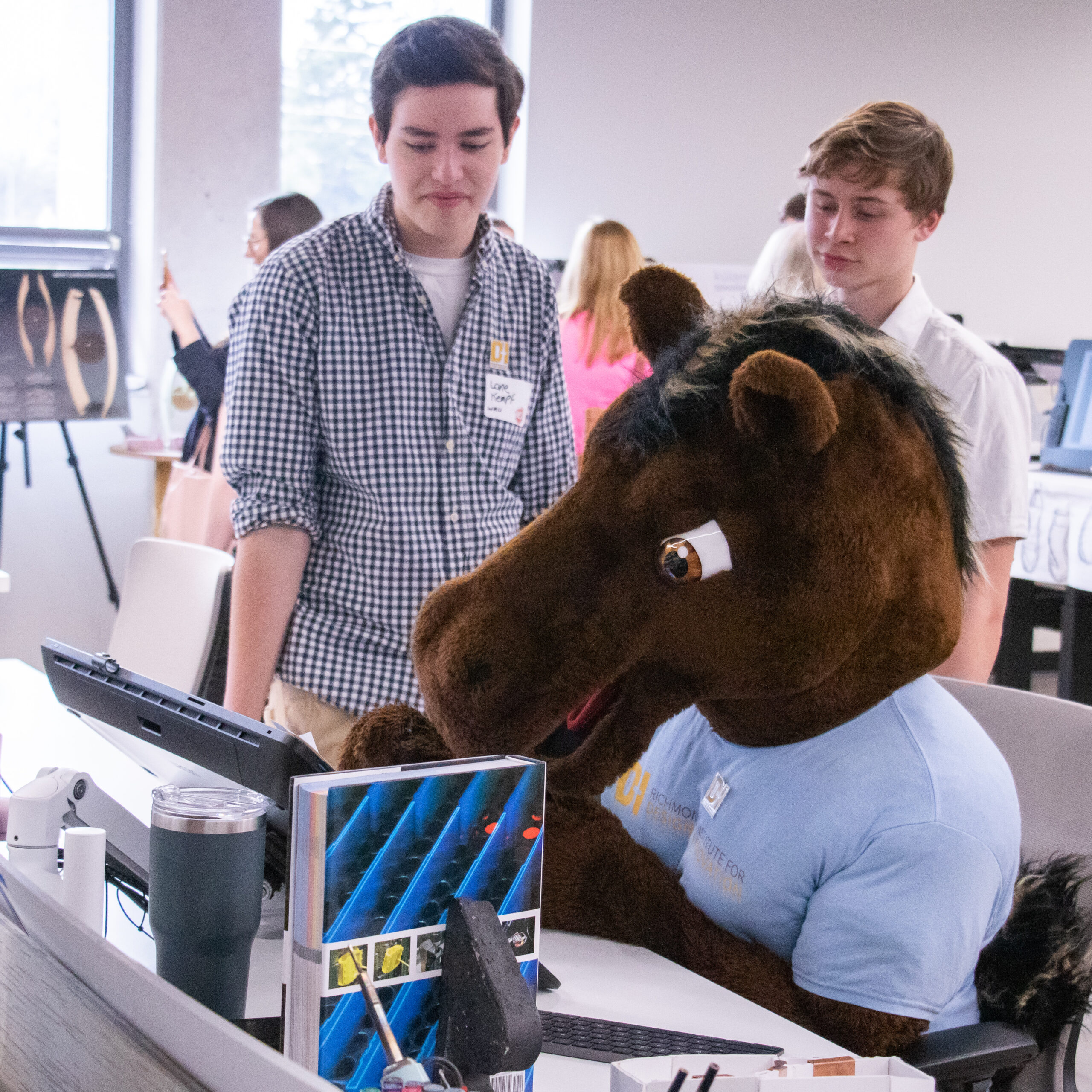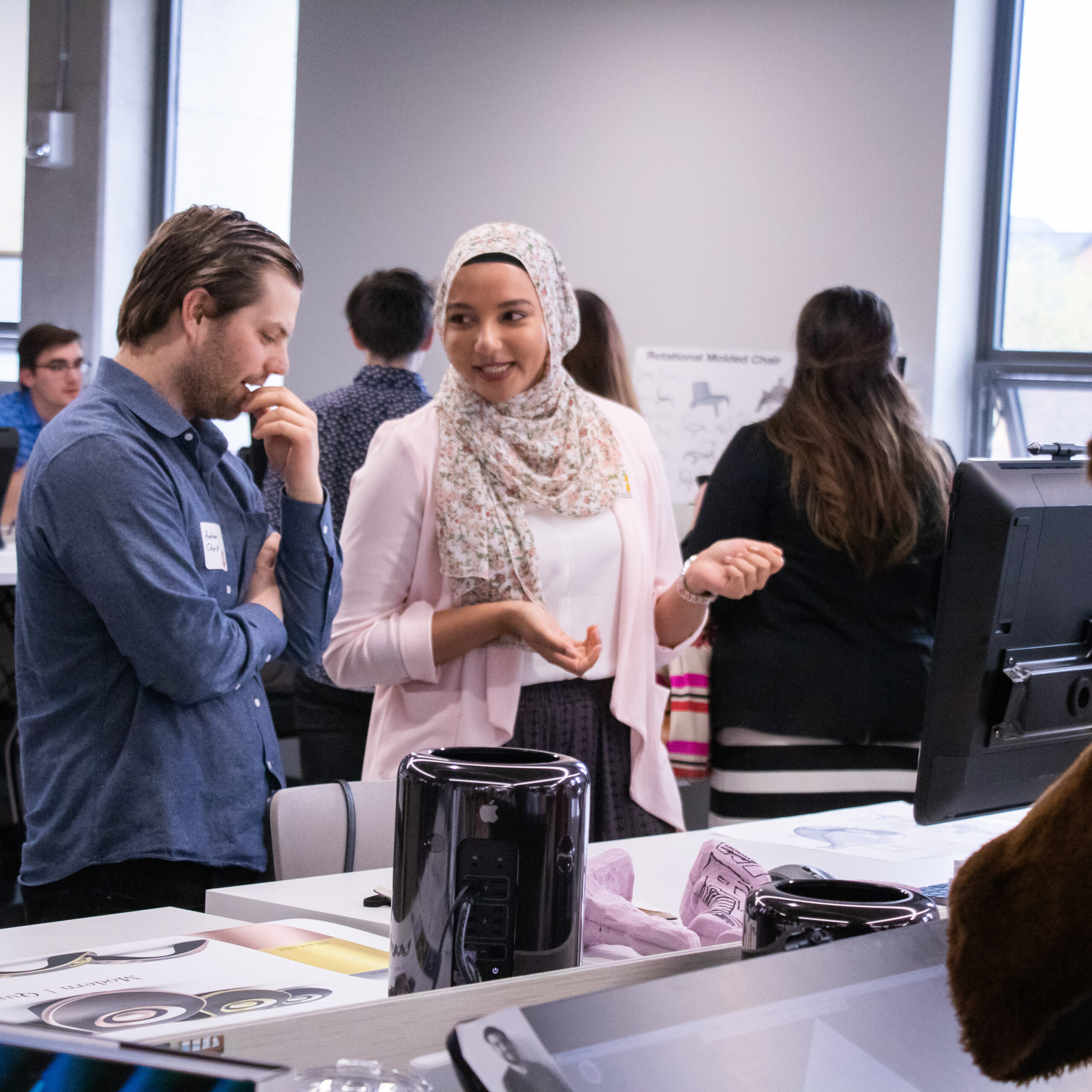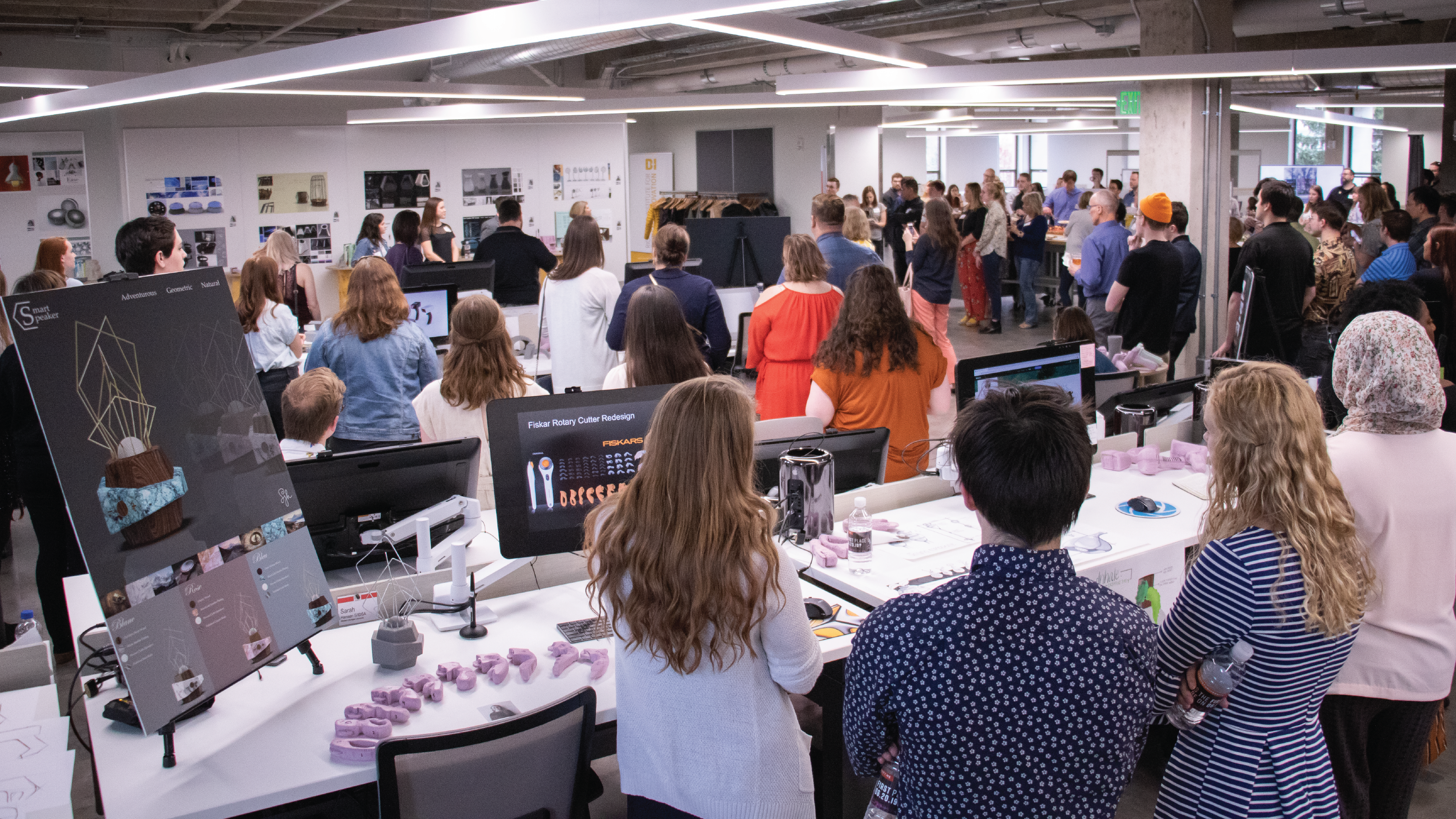The Product Design Program at the Western Michigan University (WMU) Richmond Institute for Design and Innovation (RIDI) is taking the concepts of design and innovation to a whole new level with its unique programming that prepares graduates to lead in the field of industrial design. Created in the fall of 2016, the program brings together entrepreneurship, engineering, and fine arts coursework to train future generations of product designers interested in innovating specific products and global systems.
A New Approach to the Field
Director of RIDI and Associate Professor of Product Design Mike Elwell described the program and curriculum as interdisciplinary and transdisciplinary. “What we’re trying to do is create students that are perhaps more well-rounded than the typical designer that you might see,” said Mike. “We’re not just giving them access to the art and design courses so that they could create desirable products that people want to have in their home. We’re also giving them engineering courses so that they could make feasible products that work the way that they’re supposed and viable products that have a business case behind them.”
“We believe that we’re the only program in the country that offers this transdisciplinary approach where students are getting the design, engineering, and business courses,” said Mike. “We bring together students from across the university to work on projects together to try to solve problems through the lens of design. They’re not just taking these engineering and business courses so they learn the language of the engineer or the marketer, they’re also working alongside engineers and marketers on these projects.”
Mike described the program’s first graduating class of 16 students to be exceptional, as they’ve grown with the program itself. Mike noted that the students in this class are “hungry”, saying “they just want to get better all the time. Those are easy students to work with because they’re not afraid of failure. They’re not afraid of showing work that is in process, because they want feedback on it as soon as possible.”

Pictured are students interacting with local professionals at an event at RIDI. Please note that these photos were taken before the pandemic started and therefore social distancing and masks are missing.
Community Partnerships and Growing the Talent Pool
After WMU discontinued its traditional industrial design program over a decade ago, a talent void was created for Southwest Michigan. “Companies like Whirlpool, Newell, and Stryker—companies that deserve to hire world-class talent—were having trouble finding junior designers to join their teams,” Mike said. “It’s tough to recruit someone who went to the art center in Pasadena because those people might be afraid of snow,” he said, laughing. Recognizing it would be better to grow the talent pool here, WMU eventually decided to address this issue, creating RIDI and the Product Design Program as we know it today.
“When it came time to developing the program and curriculum, the design community was very helpful in that,” Mike added. “We’re gaining national exposure because of our corporate partners, publications that are writing about us, and also the faculty members that we’ve hired.” Mike noted how grateful he is for the community partners and local design community such as MIX, powered by Southwest Michigan First, that helped get the program off the ground and connect students with local professionals.
Over time, the program has become reputable in the community and throughout the world, admitting only 24 students into the program each year. The rigorous admissions process includes interviews, evaluation of GPA and portfolios, written statements, and letters of recommendation. “The Product Design Program will always stay small, and that’s important so we can have hands-on interaction with our students,” said Mike.

Pictured are students interacting with local professionals at an event at RIDI. Please note that these photos were taken before the pandemic started and therefore social distancing and masks are missing.
Taking Innovation Out Into the Real World
Aisha Thaj, a graduating senior, used her experiences in the classroom and beyond to pave the way for a job offer before even graduating. A medallion honors scholar and Kalamazoo-area native, Aisha didn’t have a straight path to the program. After some time studying chemical engineering and researching other majors, she found the Product Design Program and great success since.
Aisha’s most recent internship experience at Bell, a helicopter company in Texas, led to a full-time job offer upon graduation. As COVID-19 complicated the internship, she was placed in the marketing department on a team in which she was the only industrial designer. “I ended up finding one other industrial design student in a group of 200 interns. She had been placed in manufacturing engineering, and I had been placed in visual communications. We were both like, ‘we’re the same major, why are we in two different places?’” she recalled. At the end of the summer, the CEO of Bell learned about Aisha and the field of industrial design and took interest, ultimately inviting her to meet and ask her how she thought industrial design could impact the company’s future. “He was very receptive to any answers or input that I had, even though I was just a summer intern,” she noted.
After the meeting with the CEO, Aisha was asked to work on a special project for Bell’s Vice President of Innovation with the other industrial design intern, paving the way for a new future in product design at the company. “The company ended up offering both of us full-time product design positions on the innovation team upon graduation. I also got a marketing job offer from the other team,” she explained. Aisha noted how her experience in the Product Design Program and mentorship from professors helped her navigate this experience and ultimately land the job offer.

